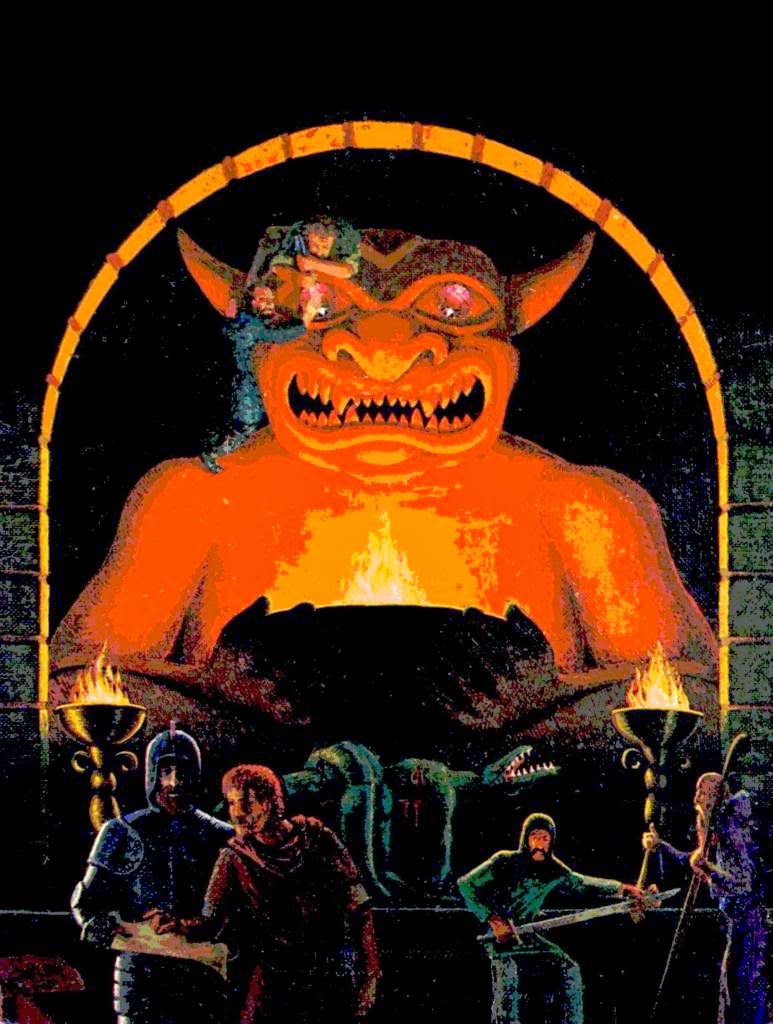For a long time, I’ve struggled to get past certain elements of DW which have made it hard for me to run.
For a long time, I’ve struggled to get past certain elements of DW which have made it hard for me to run. One of the biggest was the ability to subtly manipulate the game through modifiers. To do that, though, I always felt like I needed a larger “results array” than the default 2d6 gave me.
After reading a couple of posts and thinking a lot about the situation, I’ve started to sketch out some actual core rules modifications which I wanted to introduce here. The first involves switching the entire core mechanic of the game over to d20. The second considers a change towards an advantage/disadvantage systems. The third creates a new economy using experience points to fuel better rolls — providing a means of flattening the experience curve for people who roll a lot (they often want to use the little bonuses to be more successful) and creates a new dichotomy between being successful in the short term and growing more powerful in the long term.
Rolls and Results
Once a move applies, it’s time to look at the effects. Most moves tell you to roll+something. The roll part means to take 1d20 and roll it. The +something part means to add the modifier associated with that stat. So, a character with Dex modifier of +2 who launches a Volley rolls 1d20 and adds two. Easy.
The result of the roll falls into three categories: a 17+ is a strong hit. A 9-16 is a weak hit. A 8- is a miss. In addition, there are two “special” values – a roll of a “20” is like an extra strong hit and a roll of a “1” is a like a really bad miss.
Strong hits and weak hits are both hits. A hit means the character does what they set out to, more or less. A strong hit means they do it without much trouble or complications. A weak hit means they do it, but with complications or unintended effects. Sometimes, a weak hit will mean you need to make a hard decision about what to do next. The move will always say what to do for a strong and weak hit.
A miss means that the character’s action is unsuccessful or carries major consequences. Unless the move tells you what to do, all moves work the same on a miss—the GM takes action, doing something dangerous to the characters. You learn the most from your misses, and mark 1 experience (XP) each time you miss.
Special rolls – a natural 20 (special hit) and a natural 1 (special miss) – provide an opportunity for extra special events to occur. It’s not a requirement they occur, so don’t treat them as absolute. For example, a special hit (using the attack an enemy in melee move from above) could allow the character to do the additional +1d6 damage without opening themselves to a an enemy attack, while a special miss could cause them to fling their sword across the room with no hope of easily getting it back.
Advantage and Disadvantage
Sometimes, the fiction dictates that something a character is trying to do should be very easy because of the situation. Similarly, sometimes things can be very difficult as a result of the story. These events are characterized through the use of Advantage and Disadvantage. Normally, you would resolve a move using only a single d20 roll. In these cases, though, you actually roll 2 20-sided dice. If you have advantage, you take the higher of the two dice as your result. If you have a disadvantage, you take the lower roll between the two dice as your result. In extreme cases, you may even have significant advantage or disadvantage – where you would roll the best or worst of 3d20.
Tipping the Odds
Earlier we mentioned that when you miss, you mark experience. You can tap that experience at any time to improve your odds right now before you roll the dice. You can spend 1 experience for each +1 to the roll, but you must spend it before you make the roll.
These are just some early ideas. Comments welcome.

